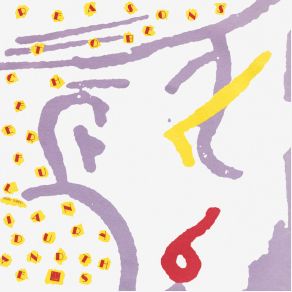Reasons to Be Cheerful, Part 3 (EP)
Download links and information about Reasons to Be Cheerful, Part 3 (EP) by Ian Dury. This album was released in 1996 and it belongs to Hip Hop/R&B, Soul, Jazz, Rock, New Wave, Rock & Roll, Punk, Disco, Alternative genres. It contains 3 tracks with total duration of 15:23 minutes.

|
|
|---|---|
| Artist: | Ian Dury |
| Release date: | 1996 |
| Genre: | Hip Hop/R&B, Soul, Jazz, Rock, New Wave, Rock & Roll, Punk, Disco, Alternative |
| Tracks: | 3 |
| Duration: | 15:23 |
| Buy it NOW at: | |
| Buy on iTunes $1.99 | |
Tracks
[Edit]| No. | Title | Length |
|---|---|---|
| 1. | Reasons to Be Cheerful, Part 3 (featuring Ian Dury And The Blockheads) | 4:45 |
| 2. | Common As Muck (featuring Ian Dury And The Blockheads) | 3:57 |
| 3. | Reasons to Be Cheerful, Part 3 (12" Version) (featuring Ian Dury And The Blockheads) | 6:41 |
Details
[Edit]The late Ian Dury knew for sure that it was a question of the right moment at the right time in the right place, because tomorrow might never arrive. And one day, he was right; it didn't. But his work ethic and never-give-up attitude left the world with some truly memorable music that is as much naughty fun as one can reasonably bear. There are 18 tracks, and all of the faves are here, of course. Who would want an Ian Dury comp without "Sex and Drugs and Rock 'n' Roll," or "Hit Me With Your Rhythm Stick," or "Sweet Gene Vincent?" So yeah, those are all here, and if those were the only singles the cat released, they would have assured his place in the pantheon of all that happened in the U.K. in the late '70s and early '80s. But what about the other stuff, like the James Brown meets Tom Tom Club meet Kurtis Blow mutation of the title track, with its sweet soul-jazz middle eight? Or, what about the driving piano funkiness of "Wake Up and Make Love With Love Me," with its hilarious dirty boasting and truly infectious greasy groove? And then there's the provocative ska meets reggae and R&B of "I Want to Be Straight," with its proclamation of wanting to get out of the dumps and into a place of stature in the welfare state. There is humor in this music in bushels. But all of that humor points to the heart of a cultural malaise, and at what crap it is to be lonely and brokenhearted and broke in an age of abundance while questioning what that abundance is. All of it backed by a band that never got credit for how tight and versatile it was, how it provoked Dury onto greater lyrical plateaus just to match those killer grooves. It's a shame the guy's gone, man, a real shame. What's worse is that he didn't get nearly the credit he was owed during his lifetime — he had a better sense of humor and was more musically interesting that James White by a country mile, and had a better band than anybody. Hopefully, anybody who was remotely interested in Dury will pick this little slab of memory up and be astonished. Never has the sound of real rebellion been so friendly or so necessary.